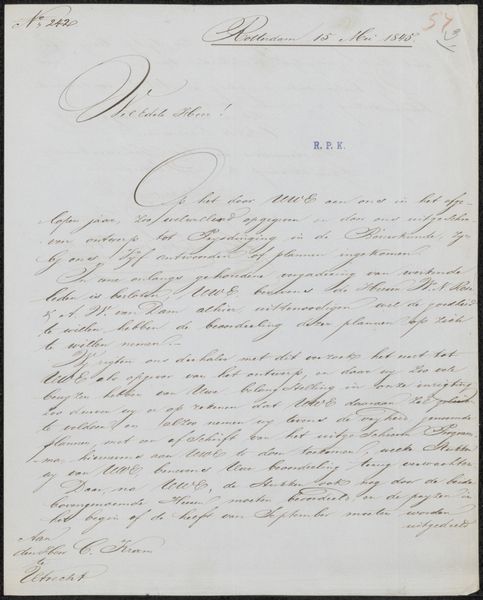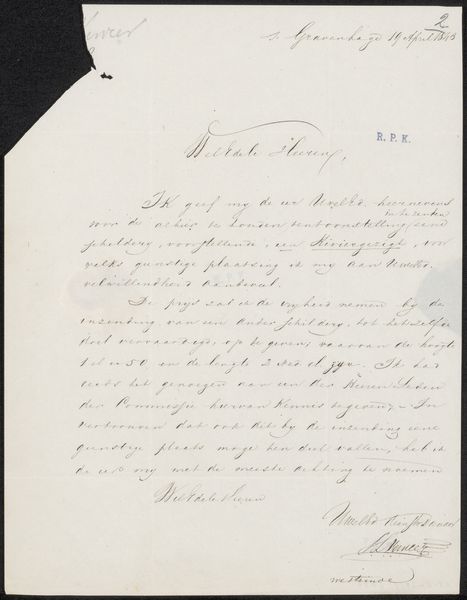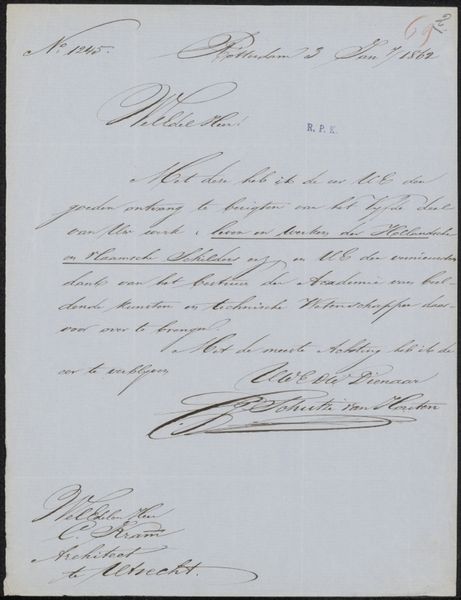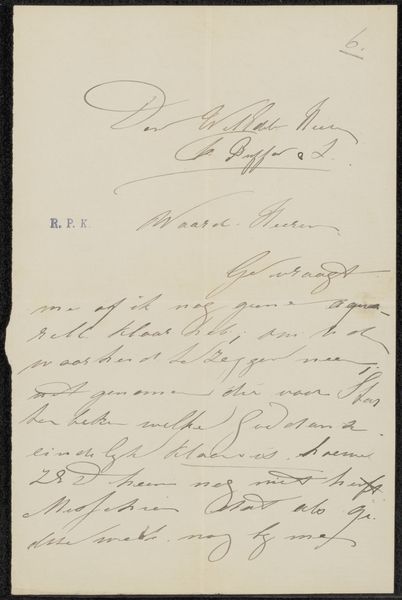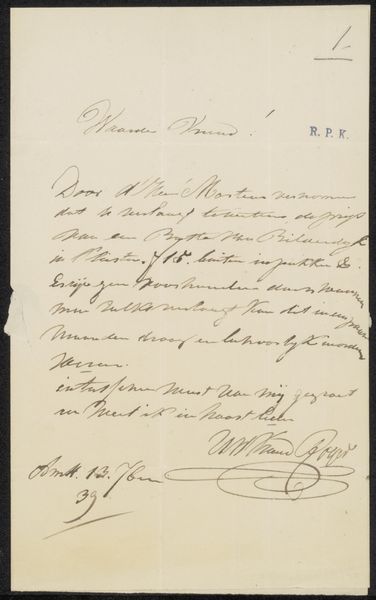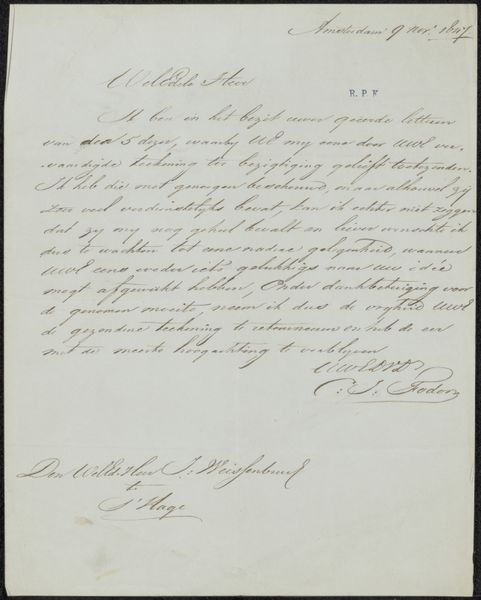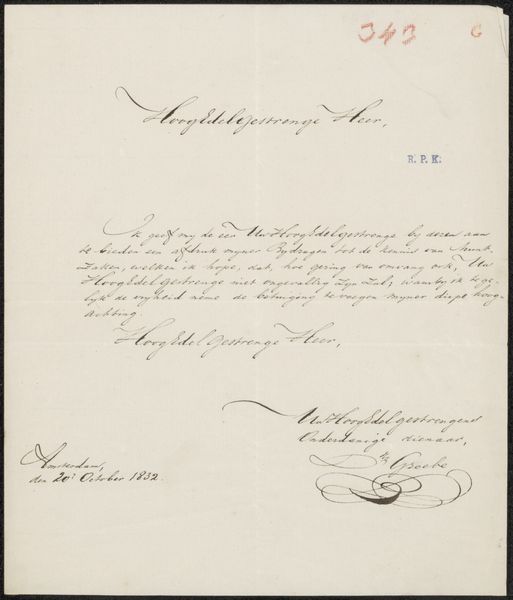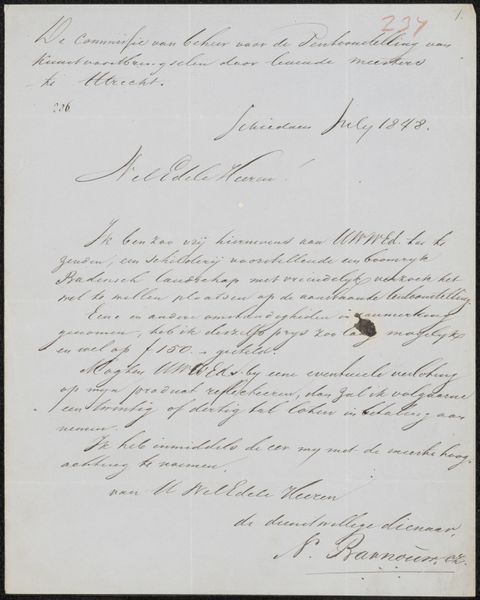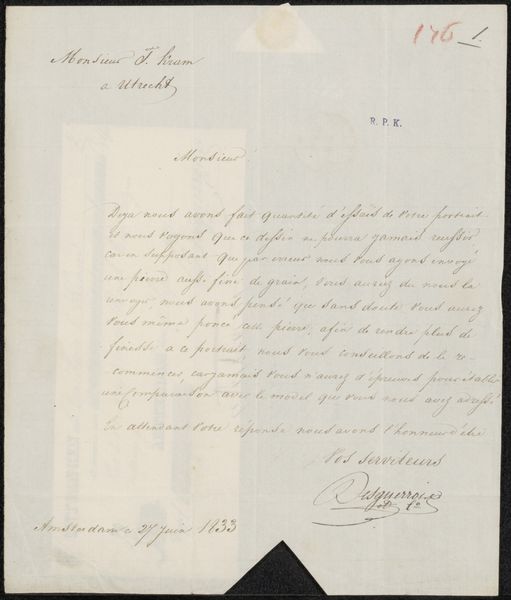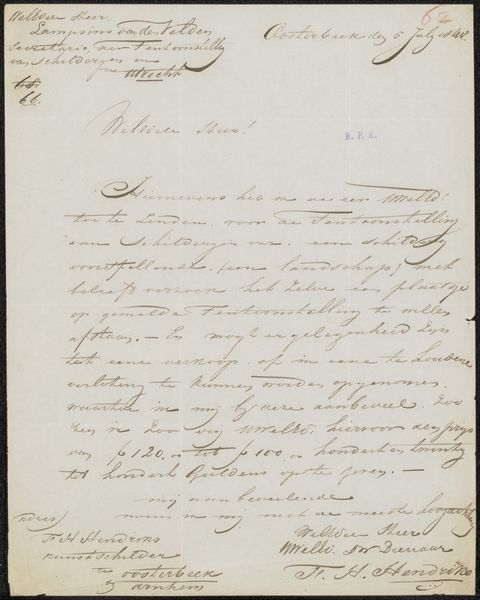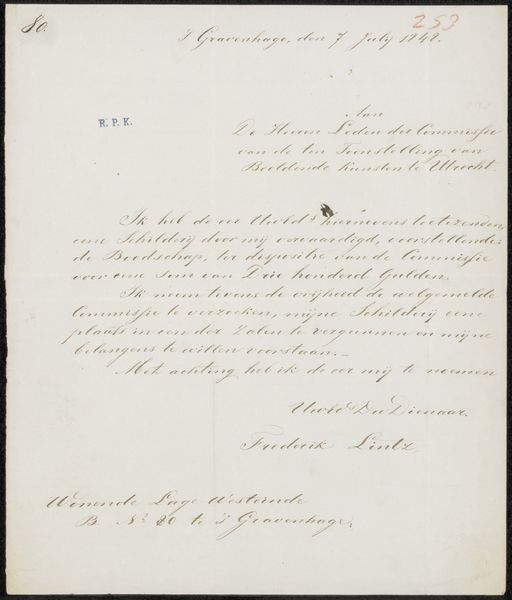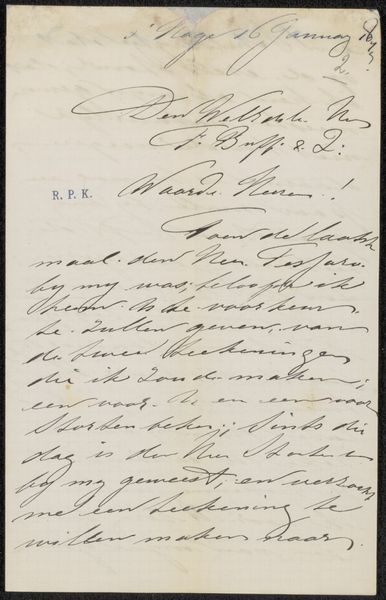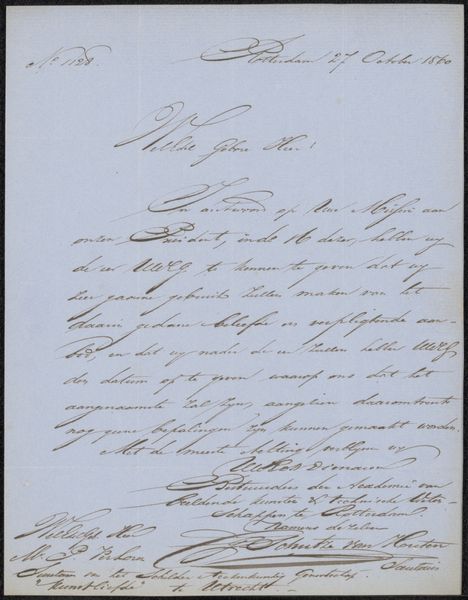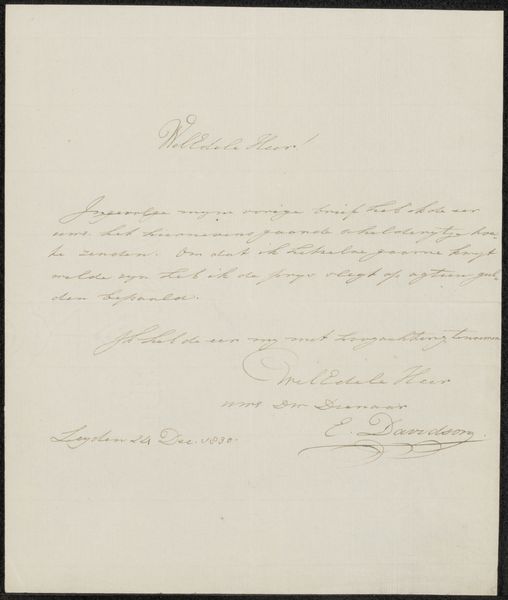
Brief aan Lambertus Hardenberg (1822-1900) Possibly 1844 - 1849
0:00
0:00
drawing, ink, pen
#
drawing
#
ink drawing
#
thin stroke sketch
#
pen sketch
#
incomplete sketchy
#
hand drawn type
#
personal sketchbook
#
ink
#
ink drawing experimentation
#
pen-ink sketch
#
sketchbook drawing
#
pen
#
sketchbook art
Copyright: Rijks Museum: Open Domain
Editor: This is "Brief aan Lambertus Hardenberg (1822-1900)" by Christiaan Godfried Schutze van Houten, made sometime between 1844 and 1849, likely with pen and ink. It feels very personal, like a peek into someone's private correspondence. I'm curious, how do you interpret this work? Curator: Beyond just a personal letter, consider how literacy and letter-writing functioned as social currency during this era. Who had access to this form of communication, and what did it signify about their place in society? Look at the handwriting—its elegance speaks to a certain level of education and social standing. This letter isn’t simply about its content; it’s a performance of identity. Who was Lambertus Hardenberg and what did this correspondence signify in their relationship and broader social sphere? Editor: That’s interesting. So, the letter itself becomes a symbol of status and connection. The elegant handwriting, the quality of the paper - things we might overlook today - all communicate something about the writer. Is it possible this wasn’t only about transmitting information but also about maintaining social hierarchies? Curator: Precisely. Consider also that the very act of preserving this letter elevates it beyond the mundane. It speaks to a conscious recognition of its potential historical value, a belief that this communication, and perhaps the individuals involved, held some significance. Could it be considered a performance of class? Editor: So, it's a multi-layered piece - a message, a social signal, and perhaps even a bid for posterity. I never considered how much history could be embedded in something as seemingly simple as a handwritten letter. Curator: And how powerful everyday writing acts such as this may have been in building networks and influence. Now, how does this impact our view of marginalized voices that might have been excluded from this realm?
Comments
No comments
Be the first to comment and join the conversation on the ultimate creative platform.
